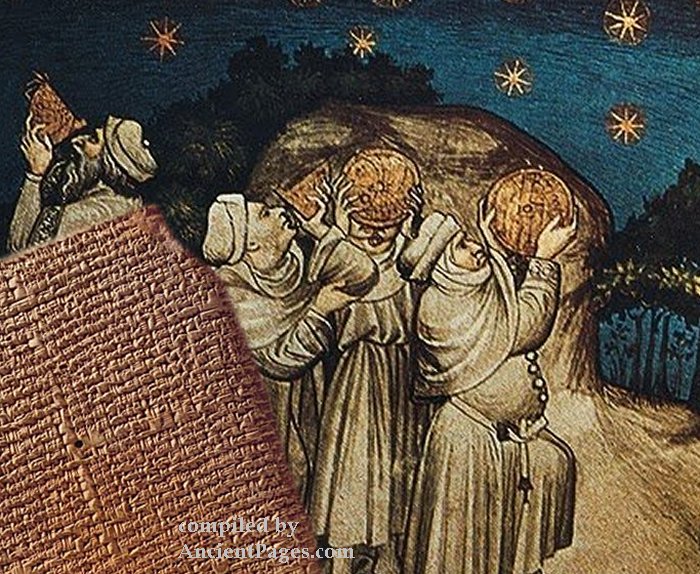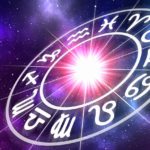Astrology is not considered a science but a pseudoscience that includes assertions and beliefs not based on scientific methods. Astrology is the study of the positions, the movements and also the effects of celestial bodies on human lives. It’s also the primary driver of all terrestrial events. Hence, it makes an attempt to understand human behaviour through the influence of planets.
The movements of other celestial bodies also have a major influence. It’s also a way to resolve the current situation and know what the future holds. Astrology is divided into several types based on its origin and the perspective of the study also. However, before getting into its classifications, let’s begin with a brief history because of its significance and the hidden facts.
The History of Astrology
There’s a profound belief that during the ancient times, it was the Babylonians who gave birth to astrology. It was somewhere in the 2nd millennium BC that their astrological charts and readings helped predict the occurrence and also the recurrence of celestial events. For over 2,000 years Babylonian Astrology and astronomy also were considered the same science.
Due to their scripts, this beginning soon gave way to the development of Astrology in Ancient Greece. It was also embraced by the Romans, the Arab World and eventually, was adopted everywhere worldwide. The purpose of Astrology has undergone several transitions since the early days. It all started with the sole purpose to induce a sense of order in day-to-day life. Eventually, it was used to predict the weather and forecasts of natural disasters. It was also used to predict the causes & effects of war and other significant events.
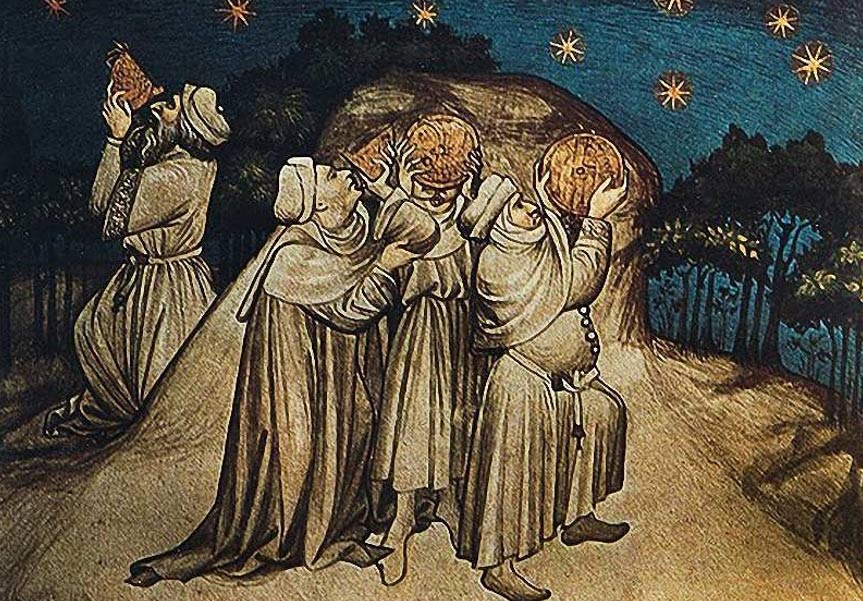
Astrology is used to predict the cause & effects of human behaviour and also their general attitude. It’s also used to observe the influence of planets and heavenly bodies on the same. Earlier, it was used by kings and emperors to study life on a universal level. But, now it’s used by the common man to grasp an idea of life and death.
Astrology is studied as a type of guidance that can influence the way humans think and also act. It’s also a means to take measures to change the course of lives for the better. It also forms the basis to study why certain individuals handle different situations in different ways and what influences their actions.
The Babylonian Era, Continued
The study of Babylonian astrology was based on divination. Their idea of seeking knowledge of the future and also unknown was by supernatural means. This is also significant in the set of 32 tablets richly-detailed with ancient texts. Sacrificial animals had blemishes on their livers and, was also considered as a symbol of messages from the gods.
They also strongly believed the gods to be present in the celestial images of heavenly bodies they were associated with. Evil celestial effects of a particular planet mean dissatisfaction of the god associated with that planet. Hence, meticulous steps were taken to appease gods in evil celestial planets and understand gods’ expressions without harming the king and his kingdom.
Let’s continue the fascinating and mysterious journey of Astrology through the different ages. There have been various classifications of Astrology depending on cultural and regional aspects and through additional inclusions as the world of astrology transitioned through several ages before reaching the modern world.
Hellenistic or Egyptian Astrology
This traditional Astrology took birth in the Hellenistic period. It’s the period between the death of Alexander the Great and also the rise of the Roman Empire. Egypt was conquered by the Persians during this period and, there’s also a strong Mesopotamian influence on Egyptian astrology. Egyptians looked up to the sky in the night to get advice from the stars. That is because they were born under these stars. They also believed that these stars influenced their personalities. Therefore, the stars were the primary source of predicting an individual’s fate.
Due to the findings, there seems to be a correlation between Egyptian Astrology and Modern Astrology where both are based on stars and the Zodiac signs.
This table will give a better picture of Egyptian Astrology in relation to Western Zodiac signs and therefore, make for a clear understanding:
| Egyptian Zodiac sign | Corresponding Western Zodiac sign |
| Osiris | Aries personality |
| Amun-Ra | Taurus personality |
| Seth | Gemini personality |
| Bastet | Cancer personality |
| Anubis | Leo personality |
| Thoth | Virgo personality |
| Geb | Libra personality |
| Mut | Scorpio personality |
| Hapi | Sagittarius personality |
| Horus | Capricorn personality |
| Sekhmet | Aquarius personality |
| Isis | Pisces personality |
These are all considered the gods of Ancient Egypt because of their profound effects. The gods/goddesses representing the signs include the secrets and also the information about your characteristics. Your attitude, strengths and weaknesses are also predicted.

Hindu or Vedic Astrology
This traditional Hindu system of Astrology is also known as Jyotisha or Jyotishya. Unlike Western Astrology that uses fixed Zodiac which considers the Earth to be at the centre, Vedic Astrology uses the movable Zodiac to decide its starting point. There are 12 signs derived from Sanskrit that are also very similar to the Zodiac signs in Western Astrology.
However, another major difference is, Hindu Astrology also incorporates the following into its readings…
- Nakshatras or lunar mansions
- Dasas or planetary periods
- Grahas or the planets
- Gocharas or transits or movements of celestial bodies
But, the Bhavas or houses also play a very critical role in astrological predictions as per Vedic Astrology. These houses also help Rashis express their true nature based on the position. The planetary periods also show the effect of active planets during the planetary period.
Importance of Vedic Astrology
Astrology also plays a significant role in the lives of most Hindus. Right from naming ceremony to fixing a date for auspicious occasions also, Astrology rules the decisions of Hindus throughout. Hence, according to Hindus, heavenly bodies have a major influence throughout the life of individuals. They also give the fruits of karma.
Therefore, human decisions are based on their placement. The navagrahas are also famous as the influential subordinates to god in Hindu Astrology. They also influence life on earth.
Western Astrology
Western Astrology has its roots in Hellenistic and Babylonian traditions and is also a strong influence of Claudius Ptolemy’s Tetrabiblos. They are also four books on the philosophy and practice of astrology, written in the 2nd century AD in Alexandria.
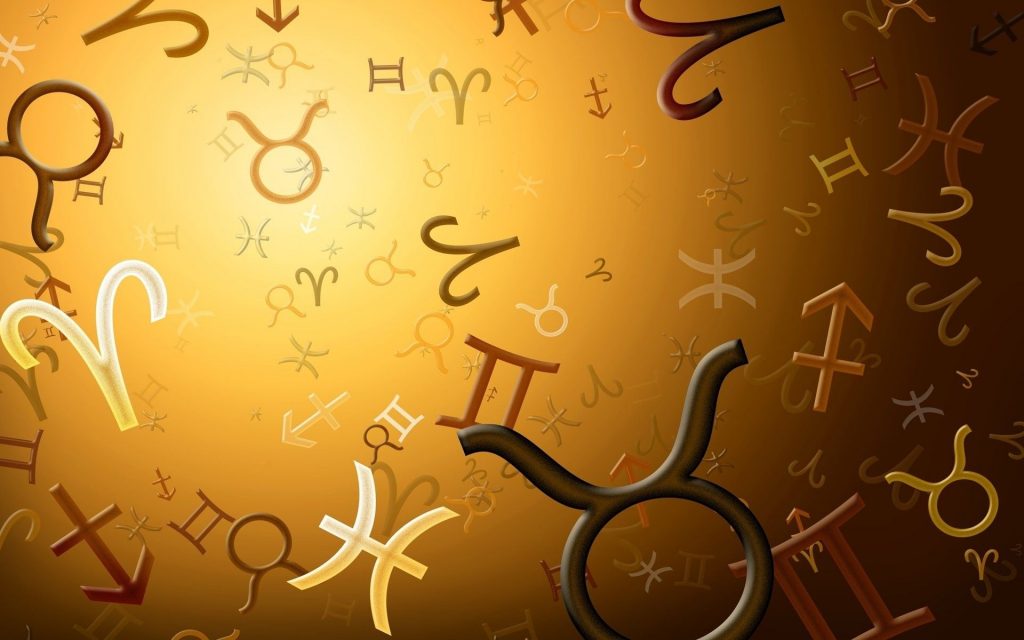
Western Astrology is based on the date, time and place of birth of an individual and also on the planetary configurations to help shape his/her characteristics. There are 12 signs with celestial names representing 12 periods that are also 12 months of the year.
The Zodiac
This is the belt or also the band of constellations or groups of stars through which the planets, the sun and the moon move across the sky. The stars are divided and also grouped according to different sizes and shapes called constellations. And because every constellation takes the shape of an animal, the Zodiac signs are named after them.
The Sun moves slowly across the celestial sphere. It also passes through the constellations. Therefore, this creates a circle for an entire year. This Ecliptic is divided equally into 12 sections of 30 degrees each. Hence, these 12 portions make the Ecliptic Constellations. This, in turn, influences Western Horoscope theories and also its predictions.
In other words, Western Astrology only takes into account the position of the Sun at birth. It’s a simplified system of Astrology where the predictions are also considered vague. Because of this reason, Western Astrology makes an attempt to broaden its vision.
Planets in Western Astrology
Western Astrology considers the planets to be the primary drivers of the human psyche. They also drive the subconscious actions of humans. Hence, for Astrology purposes, Western Astrology considers even the Sun and the Moon as planets. Every planet is also famous as the ruler of a specific Zodiac sign.
According to the Zodiac, the rulership of a particular sign is also based on seasonal derivations. Luminaries are the brightest planets that also represent the brightest months of a given year. Therefore, all the planets rule the Zodiac signs as per the astronomical measurement.
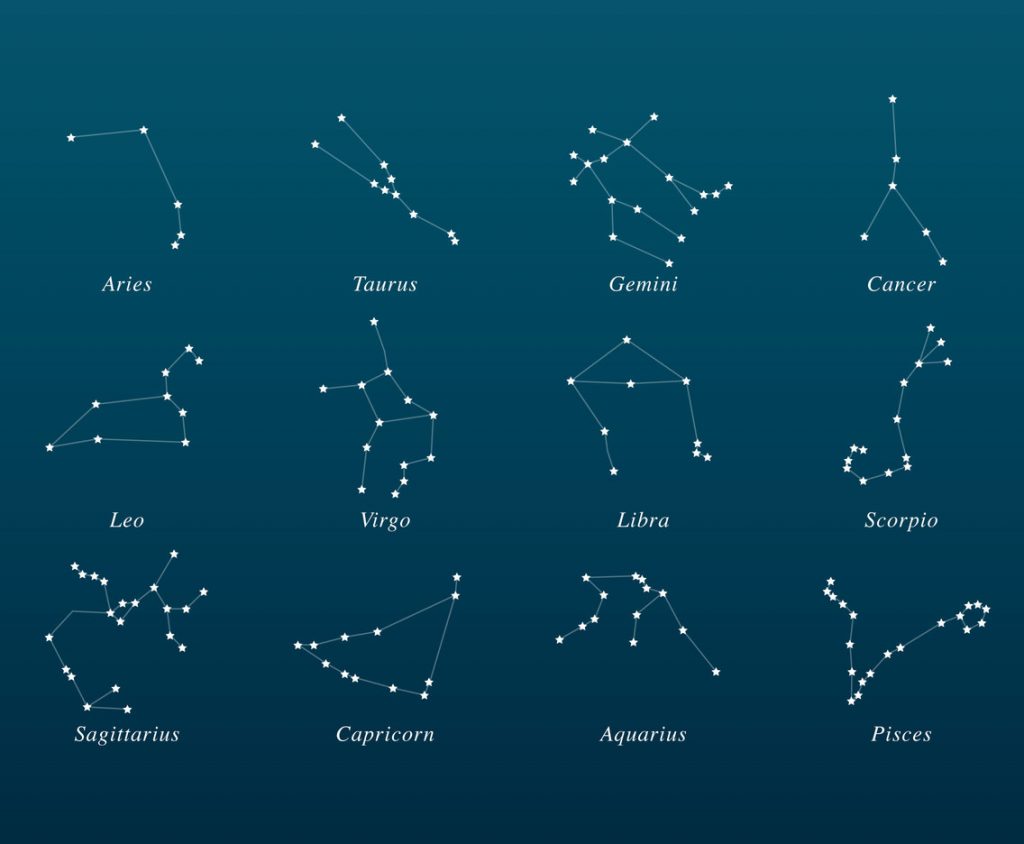
As per Western Astrology, it’s also important to know the ruling elements and the ruling planets of the Zodiac. It also gives you a clear perspective of the Zodiac. Hence, check the tables below for a better understanding:
| Elements | Zodiac Signs |
| Earth | Taurus, Virgo & Capricorn |
| Fire | Aries, Leo & Sagittarius |
| Water | Cancer, Scorpio & Pisces |
| Air | Gemini, Libra & Aquarius |
| Zodiac Signs | Ruling Planet |
| Aries | Mars |
| Taurus | Venus |
| Gemini | Mercury |
| Cancer | Moon |
| Leo | Sun |
| Virgo | Mercury |
| Libra | Venus |
| Scorpio | Mars & Pluto |
| Sagittarius | Jupiter |
| Capricorn | Saturn |
| Aquarius | Saturn & Uranus |
| Pisces | Neptune & Jupiter |
Since these factors show their results directly on the native, they form the basis from where Western astrology can expand and get more precise.
The Takeaway
The world of Astrology is a vast subject with profound insights and mysterious results also. Astrology also takes myriad aspects of the heavenly objects and the aspects of an individual’s birth to make accurate predictions. Hence, it’s imperative to consider the several aspects of the planets, the Sun and the Moon while making predictions.
Hence, just taking the Sun signs into account with the birth details doesn’t serve the purpose. Seasoned astrologers realise that drawing predictions about an individual or about future events are also based on other aspects.
Several astrological charts also come into play to show varied results. Hence, they combine to give a clear picture of events in the terrestrial world. They also give a picture of the course of life of humans. The study of Astrology has changed over the ages, with new studies and also newer discoveries.
However, one cannot ignore the traditional methods of Ancient times. Primarily because of the strong impact, ancient astrology also plays a significant role in shaping our lives. In short, it’s also the foundation on which other forms of astrology take birth.




